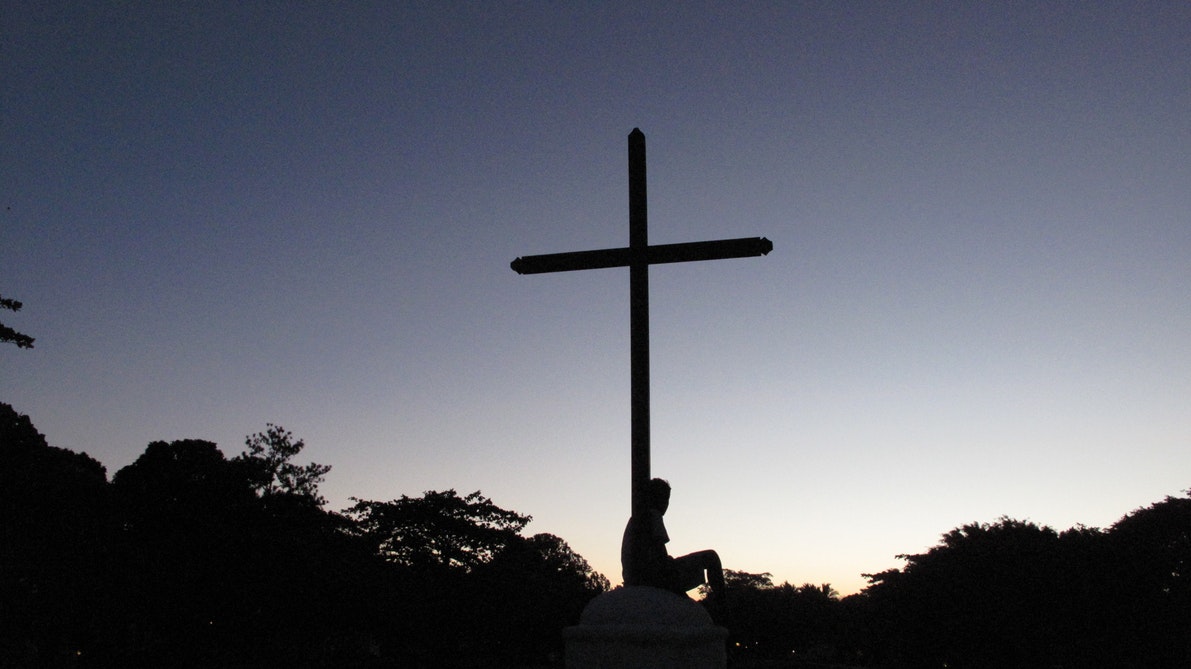Complete Dependence
Psalms 119:173 Let your hand be ready to help me, for I have chosen your precepts.
Our psalmist is in a perpetual state of prayer. His mouth is either uttering praise, thanksgiving, or supplications at all times. Here we find a supplication and an appeal to God on the basis of the psalmist’s obedience. Our first reaction may be to say that God does not grant us good gifts because of our obedience but because of His grace. Psalms 130:3 ESV If you, O Yahweh, should mark iniquities, O Lord, who could stand? However, let’s dig deeper into this gold mine of Truth that we have encountered.
It is true that God’s gifts to us are by grace, but God also ordains the means by which that grace will be conferred! While our justification is wholly based on Christ’s atoning blood being shed in our place, it is also true that God delights to give good things to His children (Matthew 7:11). Thus, when David appeals to God that his hand is ready to help him on the basis of having chosen his precepts, David is calling to attention his own election from eternity past as the basis for the supplication. God is under no obligation to help anyone, but because of electing grace, God has already promised to hear the prayers of His dear children. Walking in His precepts gives us the assurance that we are His and allows us to have meaningful prayers (1 John 3:22) with the expectation that our prayers will be effective (James 5:16; Proverbs 16:3).
The instrument that the psalmist refers to is God’s hand. God’s hand represents His power to act according to His will. It is with our hands that we lift a small child or strike a blow to an enemy. Our hands are diverse in their abilities and God’s hand being ready to help is indicative that the psalmist may be unsure of the future, but he knows that God’s hands will be capable of whatever help is necessary.
Finally, do not miss the reference to our Lord Jesus Christ. It is He who has perfectly chosen God’s precepts, and it is He who would be raised from the dead after his atoning sacrifice (1 Peter 1:21). The reason why God could raise Jesus from the dead is precisely because He chose God’s precepts and delighted in His law. The reason why God will raise you from the dead—if you are in Christ—is that Christ became a curse for you although he had done no violence and no deceit was found in His mouth (Isaiah 53:9).
Blessed Assurance
Psalms 119:174 I long for your salvation, O Yahweh, and your law is my delight.
David, like Paul, longs to be delivered from this body of death. There is an eschatological hope that every true Christian needs to have to survive the battle between the spirit and the flesh. A man or woman who has been delivered from the bondage of sin yet still experiences the corrupt nature of the flesh is miserable if he or she cannot hope to be one day delivered. Jesus came to save our souls but also to save our bodies. We reject gnostic heresy, and we are sure that the incarnation was real (1 John 4:2). Having been justified by faith in Christ, we experience joy and receive power from the Holy Spirit to preserve us and help us in our fight with sin. But God promises even more.
God promises that one day that battle with the flesh (Romans 7:15,19,24) will end once and for all when we are glorified. Glorification is the final logical step in the ordo salutis. That is, all the “steps” in our salvation are finally completed when God re-creates our bodies without the corruption we still have from original sin, and also without the instability that we had in the garden of Eden. There will be no more possibility of falling when we are made like the elect angels and like our Lord: unable to sin! Our longing for that ultimate deliverance is a sure indicator of our justification. And those who are justified are glorified (Romans 8:30).
And God gives us a foretaste of that glorious day by putting on our hearts a fundamental love for His law while our flesh still rages against our spirit in this cursed world. We are delighted by His law. He is no “cosmic killjoy.” No, our God knows what TRUE delight and joy are. He is the originator of joy and knows well how to find it. The child of God trusts His Father and, rather than viewing God’s law as rules to keep him from having fun, sees God’s law as a means to true joy. God’s law is powerless to save, make one righteous, or forgive sins. But once a person has received the Holy Spirit, God’s law is the pathway to joy and peace, bringing delight to all who love His name (Psalm 119:132).
You Need God at Every Stage of Life
Psalms 119:175 Let my soul live and praise you, and let your rules help me.
Earlier in Psalm 119, I spoke of a theory that the Psalm began with a young man (Psalm 119:9) and led us through to the end of the man’s life, showing us a spiritual maturation process. And what we find is what godly men have told us from their experience: that the older they get the more they realize their need to depend on the Lord for help. Young men have strength and resolve (1 John 2:14) and often flatter themselves that they can do more than their limited strength dictates. But God is gracious and patience and usually teaches them slowly to repent of trusting in their own strength. Old men have learned through repeated failure that they have no hope in their own strength to boast of.

Photo by bruce mars on Unsplash
I fear that many people think that one day their struggle with sin will be easier (in this life). That their spirit will ultimately conquer the flesh and they will be able to relax. If that is the case for anyone, it is the result of a devoted prayer life and the grace of God alone. But the testimony of scripture and of the church catholic has been that as we are sanctified we become ever more aware of our own shortcomings. The deep corruption which we possess from Adam’s original fall is revealed to us little by little. And it’s a good thing or else we’d die from the sheer enormity of realizing our own heinousness. But as we grow more holy and wise, we see the evil that lies within and despise it even more. “What’s the point?” you might ask? It sounds hopeless, yes. But the goal is that it will drive you to press on toward the prize for the upward call of God in Christ Jesus!
The ultimate aim is that you would call on God and rely on him for your very life. That you would trust Him to put praises on your lips when you cannot manufacture them yourself. God is the giver of life and the one worthy of praise. And a wise worshiper knows that God’s rules are a help to him or her. There is no magic formula for growing in holiness…and attempted conformity to God’s law is wrought with difficulty. If done with the wrong motivations it will have the opposite effect as intended. But for a humble servant who truly wishes to do what is pleasing to God (1 John 3:22) understanding and meditating upon God’s rule is of great benefit—especially when our gaze shifts to Jesus Crist as the One who fulfilled all the righteous demands of the law.
O God: Seek Your Servant Like a Lost Sheep
Psalms 119:176 I have gone astray like a lost sheep; seek your servant, for I do not forget your commandments.
As we come to the final verse in this great psalm, let us stop to reflect for a moment and what an undertaking this really was. One hundred seventy-six verses have been studied, meditated upon, and, in some cases, memorized. I can recite the Hebrew aleph beth (alphabet) now! We have extolled God’s virtues with the psalmist, discussed a diverse array of doctrines and found pleasure and comfort in God’s perfect Word. I hope you have found a new appreciation for this chapter. Too often before I started this project I would always read Psalm 119 in a single sitting. I never chewed on it…and there were very few verses I could recall. I have found great delight in God’s law through this study and am grateful for whoever has plod this trail with me.
 The last verse seems odd at first when we read it, in my opinion. My expectation would be that at the end of a psalm like this we would see some success story of faithfulness. But it’s almost sad on the surface. David confesses that he has gone astray like a lost sheep. He is in great need of the Good Shepherd to seek him in his lostness. I imagine David near the end of life, looking back on a life with great regret because of the evil he had done. Consider this narrative with my emphasis italicized.
The last verse seems odd at first when we read it, in my opinion. My expectation would be that at the end of a psalm like this we would see some success story of faithfulness. But it’s almost sad on the surface. David confesses that he has gone astray like a lost sheep. He is in great need of the Good Shepherd to seek him in his lostness. I imagine David near the end of life, looking back on a life with great regret because of the evil he had done. Consider this narrative with my emphasis italicized.
1 Kings 1:1-4 ESV Now King David was old and advanced in years. And although they covered him with clothes, he could not get warm. 2 Therefore his servants said to him, “Let a young woman be sought for my lord the king, and let her wait on the king and be in his service. Let her lie in your arms, that my lord the king may be warm.” 3 So they sought for a beautiful young woman throughout all the territory of Israel, and found Abishag the Shunammite, and brought her to the king. 4 The young woman was very beautiful, and she was of service to the king and attended to him, but the king knew her not.
First, notice the cold, hardness of death. Death has lost its sting in Christ, but we still will suffer the pains of it. David was cold and his body could not get warm. This is what our world has to offer. David—who was richer than most people who ever lived—could not find enough blankets to keep warm. Sin delivers us all to poverty and death eventually, if no One intervenes. While David was rich in this life and cold near death, Jesus was poor and yet exalted at the end. Jesus knew where the best portion would be and He strove toward it for our sake.
Secondly, pay attention to David’s repentance. As verse 176 tells us, he did not forget God’s commandments. David was an adulterer. He had at least seven wives. It seems what David may have done in moderation (an eye for the fairer sex), his son Solomon took to excess. But in the end, David honored God and Abishag, a beautiful woman who attended to him. He certainly could have known her, it is implied, had that been his desire. But we can hope that he had learned his lesson and his inaction with Abishag was as the result of being a lost sheep whom God sought, and who did not forget God’s commandments.
One Final Thought on Lost Sheep
Jesus, the lamb of God, became sin for His people that we might become the righteousness of God in Him. Jesus was the lamb who never strayed from the pasture, yet he took on the penalty deserved by foolish and rebellious sheep. Jesus is the lost sheep when he is suffering the penalty for our sins. Jesus is the one who cries to God to be sought after in this state. And Jesus is the one who never forgot God’s commands.
May thoughts of Jesus be with you today and every day as you study His scripture.
See all posts in this series
[loop type=”post” taxonomy=”tag” value=”Psalm 119″ format=”clean” orderby=date order=ASC author=same]
[field title-link][/loop]








Robert, thank you very much for the kind words, brother. That sincerely means a lot to me that your spirit…